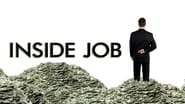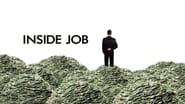utsavprabhakar
This is one of the few films that should be aired on national TV. Released in 2010 and I only get to know about it in 2018. Anyway, a mindblowing experience and highly informative movie which has a little of everything. I got goosebumps when the last dialogue was delivered "Some things are worth fighting for"
m_mehdi_m62
Informative documentary about the recession and global economy as well as crises and bubbles. This documentary is an eye opener to see how economy works in large scale and what is the government role on forming and controlling it.When economy of a nation is in jeopardy they majority within the society will pay the price and it take quite long time for nation to get back on it's feed as a whole. Every individual should know this stuff to some extend so they wouldn't fall pray of politics and bubbles.As they say history repeat itself over and over again and people would never learn...
Scuba Girl
As someone who had a front row seat to the crisis I can say that this film got many things right bit didn't delve into explaining "why". (1) There were legitimate business reasons why derivatives existed - for companies to hedge their exposures to commodities, currency fluctuations and a host of other things. (2) Glass-Steagall was an antiquated depression-era law that outstayed its welcome as financial markets became more global (also banks were engaging in these activities before the repeal via loopholes so that they could compete w global banks)(3) the movie conspicuously omitted the impact of Fannie Mae & Freddie Mac and the (mostly Democrat) politicians who supported these institutions by voting to allow them to purchase junky mortgages supposedly to support the housing market. Oh and their executives were indicted (4) the government charged the banks hefty interest for the bailout money and made billions. (5) enough with blaming Goldman Sachs for everything! What about the other banks that contributed, like Citi? Who had to pay billions in fines for fraudulent mortgages. Besides you want a Treasury Secretary who understands markets and the people at Goldman happen to be pretty good at that. (6) having Eliot Spitzer opine is like having David Hinkley discuss gun control
Lee Eisenberg
Charles Ferguson's Oscar-winning look at what caused the global financial meltdown is enough to chill anyone's bones. Narrated by Matt Damon, "Inside Job" shows how deregulation, the rise of derivatives, and the housing bubble coalesced to bring down the world economy. Sure enough, banks thought to be too big to fail did just that (too big to fail means too big to exist). Meanwhile, the executives spent millions on cocaine, prostitutes, and multiple houses. Worse still, large portions of academia endorsed the money-above-all mindset.Basically, the departments that were supposed to regulate Wall Street allowed it to run amok. As expected, Robert Rubin, Alan Greenspan, Ben Bernanke, and anyone else behind the crash declined to get interviewed for the documentary. I guess that if the documentary was missing anything, it could have noted that the unfunded wars in Afghanistan and Iraq caused the US national debt to skyrocket. Otherwise it's very well done. When Ferguson accepted his Oscar, he noted that not a single person behind the economic meltdown had faced prosecution. Five years later it's the same.Everyone should see this documentary.




